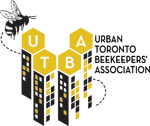Resources
-
Raring to go? What do you need to be an urban beekeeper?
You’ll need to:
Have a place to keep your bees and understand how to choose a good spot
Learn about beekeeping equipment, different hives styles and protective equipment
Understand how to protect yourself from stings through the use of protective equipment, smoke, timing and gentle frame handling technique
Learn about the roles and functions of the queen, workers and drones
Understand the honeybee lifecycle and how it impacts colony population management
Interpret colony health through frame inspection
Learn how to protect honeybee health by identifying pests and recognizing symptoms of disease and creating an integrated pest management plan
Recognize the value of inspection goals and good record keeping
Understand the process of nectar collection, ripening and honey extraction
Be able to prepare your colonies for winter
Be aware of Ontario legislation that covers beekeeping
So how do you get to where you need to be? We recommend a combination of textbooks, videos, classes, hands on practice and mentoring. Joining a local beekeeping can connect you to all of these things.
-
Essential Books for the Beekeeper
Every beekeeper should have a basic book or two to give them essential background on the art and science of beekeeping, and to consult when questions come up. Some of the best we have found, especially for the beginner beekeeper, include:
Natural Beekeeping: Organic Approaches to Modern Apiculture, 2nd Edition by Ross Conrad (2013)
The Backyard Beekeeper, 4th Edition by Kim Flottum (2018)
Beekeeping for Dummies, 4th Edition by Howland Blackiston (2019)
The Beekeepers’ Handbook, 4th Edition by Diana Sammataro and Alphonse Avitabile (2011)
For a more in-depth look at bee biology, consider a book that is widely used as a textbook in North American beekeeping courses, and keep it as a reference guide:
Honey Bee Biology and Beekeeping, by Dewey M. Caron with Lawrence John Connor (2013)
Videos
“How to” Beekeeping Videos by the University of Guelph Honey Bee Research Centre.
32 excellent short videos that provide essential information for beginners and demonstrate basic beekeeping techniques. Includes videos on Hive Equipment; Hive Location and Setup; Introducing a Nucleus Colony; Opening Hives; Colony Inspection; Smoke Use; Finding Queens; Abnormal Conditions; Harvesting Honey; and many more.
-
Classes offered by the OBA tech transfer team
Classes offered by the University of Guelph
Classes offered by Niagara College
-
If you live in Toronto:
Join the Urban Toronto Beekeeper’s Association
Join the Toronto District Beekeeper’s Association
If you are outside of Toronto check the OBA for a list of local clubs
Join the Ontario Beekeeper’s Association. They are an advocate for beekeepers and offer affordable liability insurance.
-
Joining a class and/or local beekeeping association will put you in touch with others who may be willing to offer a casual mentorship.
-
A good place to start to learn All About Honey
Basic beekeeping equipment
Buying bees in Ontario. What you need to know.
The Beekeepers Calendar. Keypoints from the beekeeper’s calendar. (link coming soon).
Pest and Disease control options. and specifically varroa management
Thinking of going organic?
What is a swarm?
Honey container and labelling requirements
Register your hives with the Ontario Ministry of Agriculture and Rural Affairs using the ask OMAFRA Bee Portal.
